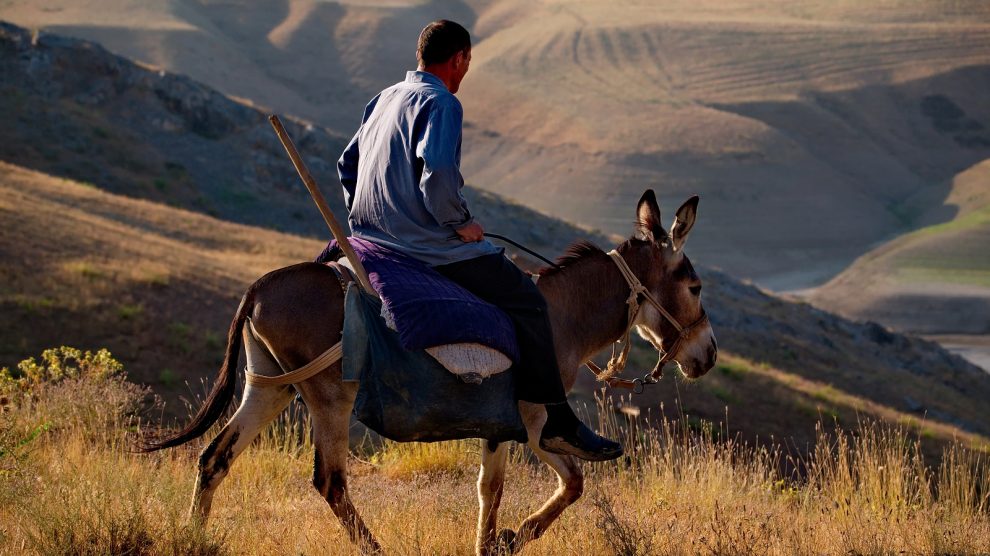In order for Tajikistan to ensure sustainable development, it needs to implement structural reforms focused on enhancing economic openness and competitive neutrality, and improve public sector governance, transparency and accountability for better public service delivery.
With the highest growth rate of any economy in Central and Eastern Europe and Central Asia, Tajikistan—on paper at least—is booming.
However, a major new report from the World Bank suggests that the country could do even better, and that without key reforms the high growth levels of recent years could soon be a thing of that past.
Tajikistan’s economy grew 8.3 per cent in 2023 and 8.2 per cent in early 2024, according to the World Bank’s latest Tajikistan Economic Update.
According to the report, the growth was driven by increased revenues from gold exports and substantial public infrastructure spending. Robust worker remittances and public wage increases also strengthened domestic demand, contributing to overall poverty reduction in the country.
- Economy in focus: Tajikistan
- The NGO empowering Tajik women and girls to take up careers in IT
- Tajikistan’s hijab ban will not end extremism
The report highlights that Tajikistan has managed to control inflation through a combination of declining global food and fuel prices and a tighter monetary policy.
High disbursement of external grants have supported the fiscal position, leading to a reduction in public debt levels. However, the economic outlook faces several challenges with more subdued economic growth projected at 6.5 per cent in 2024 and 4.5 per cent in the medium-term, reflecting sluggish growth in key trading partners, such as China, Kazakhstan, Russia, and Türkiye, and domestic reform inertia.
Potential risks to the economic outlook include escalation of global and regional tensions and stricter migration policies in Russia.
The report cautions that in order for Tajikistan to ensure sustainable development, it needs to implement structural reforms focused on enhancing economic openness and competitive neutrality, and improve public sector governance, transparency and accountability for better public service delivery.
“Tajikistan’s recent economic performance is commendable, but sustaining this momentum will require concerted efforts to address structural challenges to ensure competition among all economic players,” says Ozan Sevimli, World Bank Group Country Manager for Tajikistan.
“Embracing fair competition and competitive neutrality between state-owned enterprises and the private sector is vital for fostering innovation, driving efficiency, and ensuring that all players can thrive on a level playing field, ultimately benefiting the economy and society as a whole,” he adds.
Time to end the stranglehold of SOEs
The World Bank’s report also points to the significant influence of state-owned enterprises (SOEs) in Tajikistan’s economy.
With over 1,000 registered and more than 600 majority state-owned, SOEs have prominent positions in key sectors such as mining, energy, and telecom, with the top 10 SOEs holding 97 per cent of total SOE assets.
However, most SOEs are unprofitable, with the top 25 SOEs incurring a net loss of 4.2 billion somoni (361.5 million euros; 3.2 per cent of GDP) in 2023, posing fiscal risks.
SOEs distort market dynamics through preferential treatments like tax breaks and subsidized loans, hindering private sector development.
The absence of a clear policy framework for SOE creation and ownership results in their widespread presence, including in competitive markets, where the rationale for state involvement cannot be justified by the need to address market failures.
The state footprint reduces market efficiency and deters private investment. In competitive sectors, SOEs exacerbate market distortions by not being required to achieve commercial rates of return, thus enjoying an unfair advantage over private competitors.
Their dual roles in policymaking and market participation create conflicts of interest, and legal provisions favoring SOEs, such as lenient insolvency procedures, further hinder fair competition.
Moreover, the lack of transparency in state aid distribution and restrictions on foreign investment limit market access and efficiency. Outdated price regulation methodologies in SOE-dominated sectors also undermine efficiency and competition.
To address these challenges, well-defined policies are needed in Tajikistan to ensure competitive fairness, transparent state aid, and reforms that encourage equitable competition.
By creating a level playing field for investors, Tajikistan can unlock its economic potential, foster private sector growth and achieve sustainable economic development.
Climate change risks
The report also highlights the importance of promoting adaptation measures to mitigate the impacts of climate change and the need to strengthen economic resilience against natural disasters.
Tajikistan’s mountainous terrain and its dependency on water resources from glaciers makes it more prone to climate change than any other country in Central Asia. In 2023, more than 550 emergencies linked to natural disasters killed a total of 51 people.
In the worst disaster, in August 2023, three days of torrential rains caused flooding, landslides and mudflows, killing 21 people.
Unlike many news and information platforms, Emerging Europe is free to read, and always will be. There is no paywall here. We are independent, not affiliated with nor representing any political party or business organisation. We want the very best for emerging Europe, nothing more, nothing less. Your support will help us continue to spread the word about this amazing region.
You can contribute here. Thank you.



Add Comment